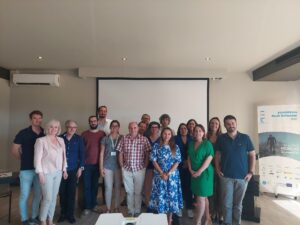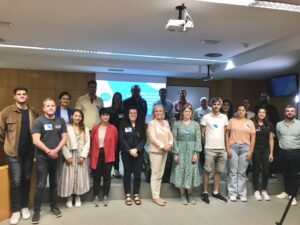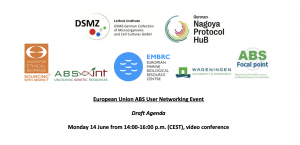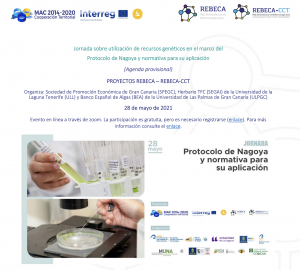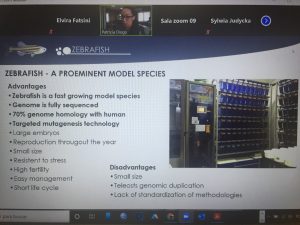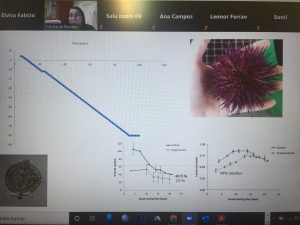On July 4th and 5th, 2023, the members of the Interreg European Marine Biological Resource Centre Biobank (EBB) gathered in Porto, Portugal, to mark the conclusion of the project. Participants from several countries involved in the project, including Spain, Portugal, France, and Norway, came together for the Final Meeting to discuss topics such as ABS regulation, project outcomes, as well as the project’s legacy and future perspectives.
The event on July 4th commenced with opening remarks by Nicolas Pade (Executive Director of EMBRC) and Maria Huete (Project Coordinator at Uvigo). This was followed by a presentation by Anne Emmanuelle Kervella (International Cooperation, CNRS & EMBRC-ERIC), who introduced the best practices guidelines (BPGs) for ABS regulation. Ian Probert (Head of Roscoff Culture Collection, EMBRC-FR (SU-CNRS)) then presented the TRACE and TRACK tools for biobanks. Arnaud Laroquette (ABS Compliance Officer, EMBRC-ERIC) concluded the session by conducting webinars that provided an introduction to the EU Access and Benefit Sharing regulations for culture collections and users.
On 5th July, the Work Packages WP3-Capitalization, WP4-Development of common methodologies for the management of Marine Biobanks and WP5-ABS compliance for collections and fundamental research using MBRs (EMBRC-ERIC, UVIGO) leaders presented their outcomes. Moreover, there was a panel conducted by Juliana Carvajal (Head of European Affairs, Pôle Mer Bretagne Atlantique) about the role of biological resource centres in ABS. The closure was conducted by Nicolas Pade and Estefania Paredes Rosendo (UVigo).
The meeting was broadcasted by Vimeo and participants could also join by Zoom videoconference. The main goal of the EBB project was to facilitate sustainable access to marine biodiversity, its associated data, and extractable products for local and international academia and industry users, and to incentivize biodiversity conservation in coastal ecosystems by promoting compliance with Access and Benefit Sharing (ABS) from the Nagoya Protocol. The project accomplished its initial proposals and leave an important legacy on the ABS regulation knowledge.
